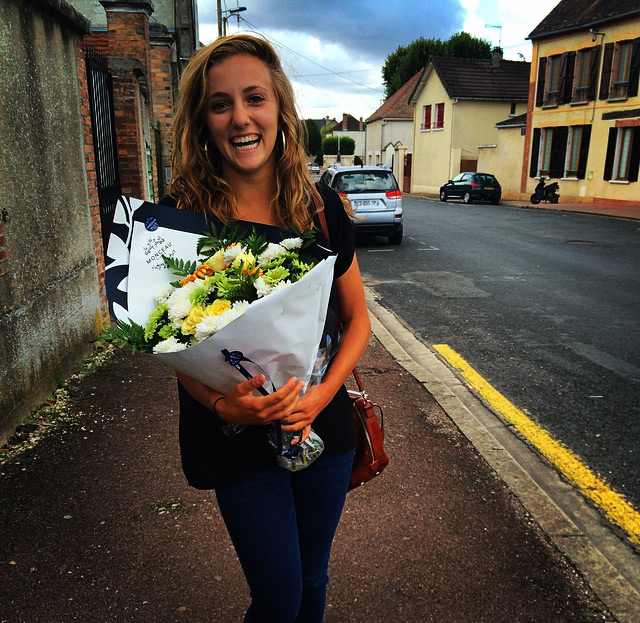Emma Labovitz had planned to major in Political Science until she took Global Studies 2000 with Dr. Joe Gonzalez in fall semester of her freshman year.
“We had just 17 students in the class. We talked about global issues and I’d stay after class and talk to him. I realized my passion wasn’t for politics but more for foreign policy, foreign aid and this international perspective,” said Labovitz, who is a Wilson Scholar and will graduate in 2018.
“I felt that with Global Studies I could better focus on my interests and be able affect global change, maybe on a more local scale working with different communities abroad. The reverberation from that change can have a more lasting effect,” she said.
Since starting college, Labovitz quickly has become a globe trotter. As a Wilson Scholar she started her first year with a study abroad to Paris, France, to explore social justice, which she said “opened my eyes to global issues.”
She took a Birthright Israel trip during the holiday break and participated in an Alternative Service Experience in Ecuador during spring break, helping Appalachian alumni with a three-day English immersion camp for 5 to 17 year olds.
In Summer 2015, she interned in India with the nonprofit Madras Christian Council of Social Service using experiential scholarship funds available to her as part of the Wilson Scholars program. Before she graduates, she hopes to study abroad in Spain, do an internship in Europe and visit Africa. Having already traveled to Guatemala before college, she said she takes an interest in seeing how poverty differs and is handled in various parts of the world.
“This major is for someone who definitely loves to travel, but not to take cute photos or go shopping. It’s a love of traveling for understanding new cultures, bringing your perspective and looking at their perspective, and thinking how we can create a better world by sharing our ideas and beliefs,” she said.
Global Studies requires a minor, and Labovitz has chosen Spanish along with a second minor of political science. Her described her classes as small, discussion-based and contributing to Appalachian’s overall sense of community.

